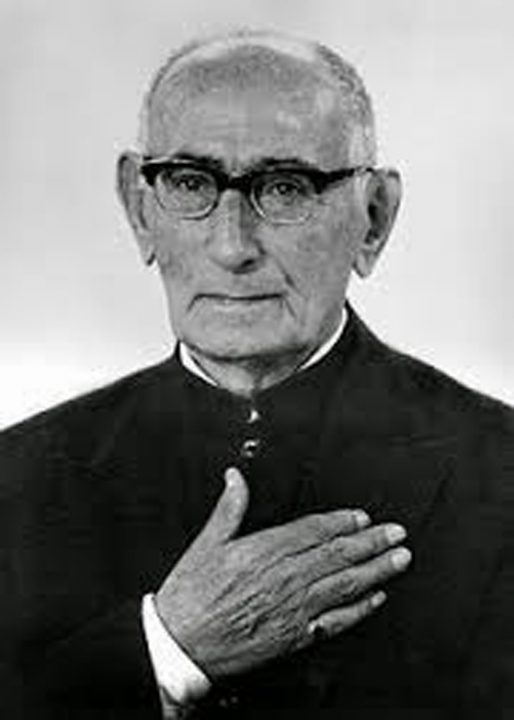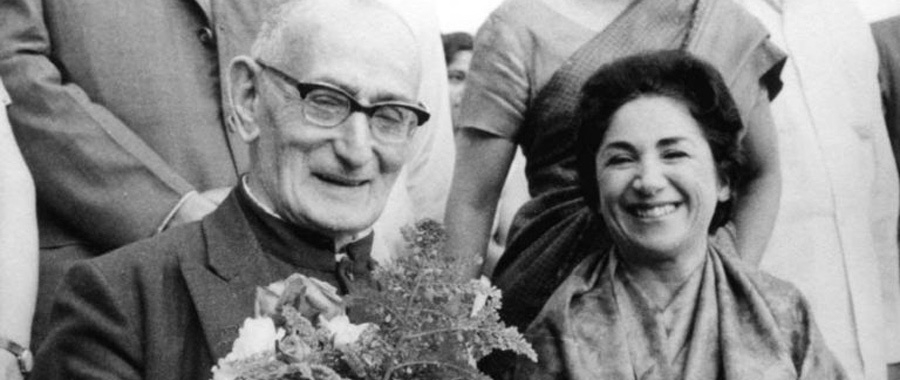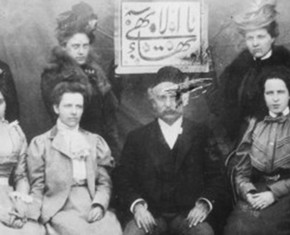The views expressed in our content reflect individual perspectives and do not represent the authoritative views of the Baha'i Faith.
I sat on the floor in the crowded living room of the artist David Villasenor and listened as Mr. Samandarí told the story in Persian of the occasions on which he had been in the presence of Baha’u’llah.
I had met the man who had met Baha’u’llah, the founder of the Baha’i Faith.
Imagine it, if you will – being in the presence of someone who met a holy messenger, Christ, or Buddha, or Moses. Like me, you would want to soak in every detail of what that person saw, heard, and felt. On that day Tarazu’llah Samandari was a very old man of ninety-two, and his son Mihdi translated for his father.

Mr. Samandari was seventeen when he first made the long trip from Persia to the Turkish penal colony of Akka where Baha’u’llah had been incarcerated for more than twenty years. The trip had taken many weeks, but had been worth it. For a period of six months he had been in the company of Baha’u’llah’s family, and on several occasions had heard Baha’u’llah reveal the words of God as he dictated tablets and prayers.
His memory sharp and unfaded, every scene was there like a photograph in his mind. As he described the events he had witnessed, he included even the smallest details. He told how on one occasion he was asked by Baha’u’llah to distribute roses to all the people present; he cherished the honor of having provided even this small and simple service. His stories were like small windows on a different time and place which we could see through his eyes. He had seen the early Baha’is coming on foot as pilgrims from far away in an effort to witness for themselves the author of the Baha’i teachings, which they had read and adopted as their religion. During the first years of Baha’u’llah’s imprisonment, pilgrims would arrive at the prison gate and beg to be admitted. This would leave the prison guards bewildered. They could not understand why anyone would want to try to get into prison.
Those who were allowed to enter would stay for weeks or months in the foulest and most squalid of conditions just to be near Baha’u’llah, the messenger of God. Disease at that time was rampant in the prison city, so the pilgrims ran the very real risk of contracting something fatal, and dying before they could leave. Sometimes the pilgrims were turned away and not allowed entrance. They would have to content themselves with standing on the far side of the double moat which surrounded the city, and seeing only Baha’u’llah’s hand as he waved to them through the barred window of his cell. Broken-hearted, they would return on foot the hundreds of miles back to their homelands, having seen only His hand.
As Mr. Samandari described what he had seen, we sat enwrapped in the images of his words. He had been fortunate to arrive during a time in which people were more freely allowed to visit Baha’u’llah. He told us that the personality of Baha’u’llah finally won over the guards and the governor of the prison city himself. They recognized his guiltlessness, and even without the permission of their governmental superiors, permitted him to live outside the walls of Akka.
Via his translator, Mr. Samandarí humbly described Baha’u’llah’s majesty and kindness; the memories of a time when he was a youth of my age of seventeen. When he was finished, some of us asked questions about what it was like to have been a Baha’i during the time of the messenger of God Himself. He told of the honor he had in serving Baha’u’llah both during his life and afterwards, and that it is the duty of everyone to respond to the needs of the times in which they live and to do what they can as Baha’is.
I realized then that in a sense I had not missed meeting Baha’u’llah. Certainly I had not missed knowing about him, since I had read his books and recognized the divine origin of his teachings. I had even met someone who had met him. Above all, I had become a Baha’i, recognizing the truth of the Baha’i teachings. It was not important that I had not seen Baha’u’llah with my own eyes or heard the tones of his voice with my own ears; his words and teachings were what mattered. The message was still here even if the messenger of God had gone away:
Light is good in whatsoever lamp it is burning! A rose is beautiful in whatsoever garden it may bloom! A star has the same radiance if it shines from the East or from the West. Be free from prejudice, so will you love the Sun of Truth from whatsoever point in the horizon it may arise! You will realize that if the Divine light of truth shone in Jesus Christ it also shone in Moses and in Buddha. The earnest seeker will arrive at this truth. – Abdu’l-Baha, Paris Talks, p. 137.
Someone in the room then asked about the passing of Baha’u’llah. Mr. Samandari’s voice was suddenly sorrowful as he reluctantly recounted how he had been amongst the visiting pilgrims and resident Baha’is from around Akka who were summoned to the presence of Baha’u’llah while he was lying ill in bed, being tended by his family. As he stood there as a young man so many years ago, Mr. Samandari realized that Baha’u’llah was dying.
He paused for a while and then repeated what Baha’u’llah had told the grief-stricken assembly of devoted Baha’is. Baha’u’llah’s voice was clear, but softer because of the fever he had contracted. He spoke about the importance of unity. From the way Mr. Samandari spoke and his humble gestures, even before the words were translated from Persian, made it obvious with what love he regarded Baha’u’llah. Before excusing himself and retiring for the night, Mr. Samandari gave us the same message Baha’u’llah had given him: that we should be united and seek to promote unity in the world:
This is the Day in which God’s most excellent favors have been poured out upon men, the Day in which His most mighty grace hath been infused into all created things. It is incumbent upon all the peoples of the world to reconcile their differences, and, with perfect unity and peace, abide beneath the shadow of the Tree of His care and loving-kindness. – Baha’u’llah, Gleanings from the Writings of Baha’u’llah, p. 6.
This series of essays is adapted from Joseph Roy Sheppherd’s book The Elements of the Baha’i Faith, with permission from his widow Jan Sheppherd.
















Comments
Sign in or create an account
Continue with Googleor